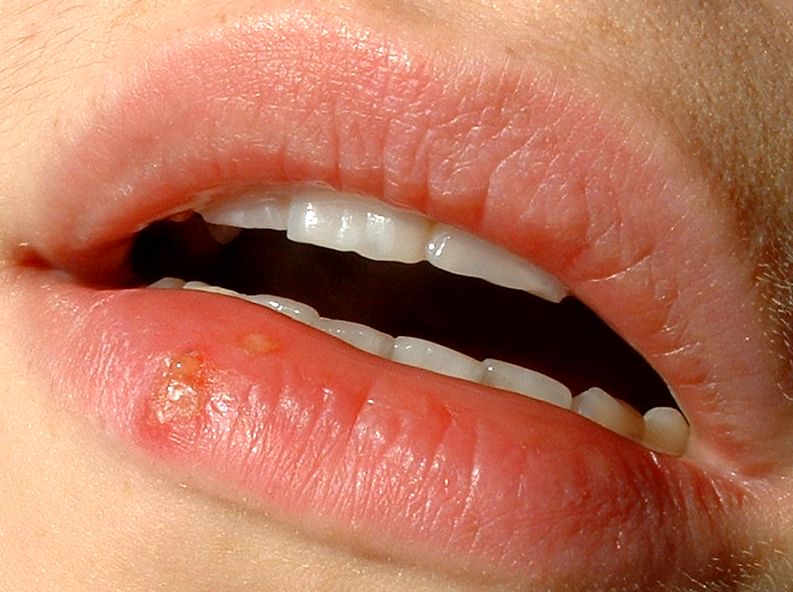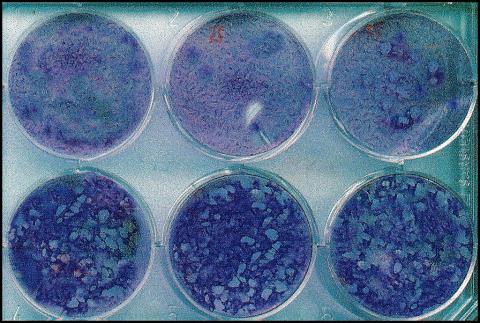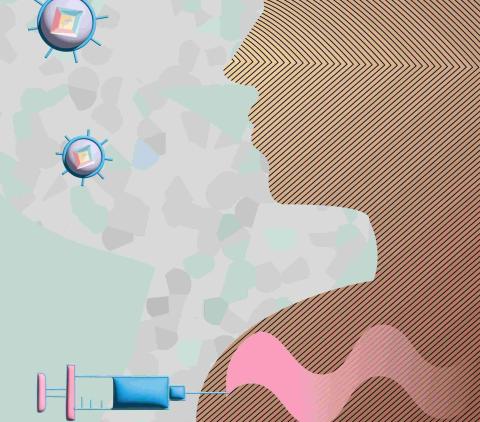Cold sores infections are associated with an increased risk of Alzheimer's disease
A US study analysing data from nearly 700,000 people concluded that those with a history of herpes simplex virus (HSV-1) infections were at greater risk of developing Alzheimer's disease. The study, published in BMJ Open, also showed that patients with this virus who used anti-herpes treatments were less likely to develop the disease.

Alberto Ascherio - herpés alzheimer EN
Alberto Ascherio
Professor of Epidemiology and Nutrition at the TH Chan School of Public Health, Harvard University and Professor of Medicine at Harvard Medical School
This is a high-quality study that stands out mainly for its sample size. The results confirm previous findings that people with a history of cold sores have a higher risk of developing Alzheimer's disease and that this risk appears to be reduced in people who receive antiviral treatment. This is an observational study based on electronic data of varying quality, so the conclusions cannot be considered definitive. For example, the vast majority of cold sore episodes are not reported in medical records, so the study's conclusions apply to a highly selected subgroup of individuals with clinical episodes of cold sores, perhaps due to clinical severity or the presence of other factors. For this reason, it would be premature for people with cold sores to worry about having an increased risk of Alzheimer's disease. However, there is growing evidence that viral infections may affect the risk of Alzheimer's disease, and it is important to initiate more definitive research.
María Jesús Bullido - herpes alzhéimer EN
María Jesús Bullido Gómez-Heras
Head of the Pathogenic Mechanisms of Alzheimer's Disease research group and researcher at the Severo Ochoa Molecular Biology Centre
"This study reinforces previous studies on the association between herpes viruses and the risk of dementia and on the ability of anti-herpes treatments to reduce that risk. This study extends previous observations in Asian and European populations to an American population, suggesting that it will be true globally.
Although much research remains to be done to uncover the reasons and mechanisms that lead from infection to a dementia process that manifests many years later, the accumulation of evidence suggests that managing these infections, with treatments that are effective for all herpes viruses or with vaccines such as the shingles vaccine, is an interesting tool for reducing the risk or delaying dementia."
Is the study of good quality?
‘Yes, sufficient to support the claims they make.’
Does it fit with existing evidence?
‘Yes.’
Does it have any notable limitations?
‘It has some, which the authors discuss sufficiently in the discussion.’
What message would you like to convey to people who have cold sores periodically?
"They should be clear that having cold sores is by no means a “sentence” to developing dementia, but simply another risk factor (much less important than ageing itself). In fact, the vast majority of the adult population is infected with this virus. What recent studies, including this one, suggest is that if you have cold sores, using antiviral drugs during outbreaks may be a good idea."
Tara Spires-Jones - herpes alzheimer EN
Tara Spires-Jones
Director of the Centre for Discovery Brain Sciences at the University of Edinburgh, Group Leader in the UK Dementia Research Institute, and Past President of the British Neuroscience Association
This study reports that diagnosis of herpes simplex virus type 1 (HSV-1) infection is associated with increased risk of diagnosis of Alzheimer’s disease-related dementia. Scientists examined data from almost 700,000 people in a medical insurance claims database and found that in addition to an increased proportion of people with Alzheimer’s disease having a diagnosis of HSV-1, people with HSV-1 who were treated for the viral infection with “antiherpetic” medication were less likely to develop Alzheimer’s than those who did not have treatment.
This is a well-conducted study adding to strong data in the field linking HSV-1 and other viral infections to increased risk of developing Alzheimer’s disease, but it is important to note that HSV-1 infection, which is extremely common in the population, is by no means a guarantee that someone will develop Alzheimer’s.
Why viral infections may increase risk of dementia is not fully understood, but the most likely explanation is that infections increase inflammation in the body and contribute to age-related brain inflammation. More research is needed to understand the best way to protect our brains from Alzheimer’s disease as we age, including a better understanding of links between viral infection and Alzheimer’s risk.
Conflict of interest: “I have no conflicts with this study but have received payments for consulting, scientific talks, or collaborative research over the past 10 years from AbbVie, Sanofi, Merck, Scottish Brain Sciences, Jay Therapeutics, Cognition Therapeutics, Ono, and Eisai. I am also Charity trustee for the British Neuroscience Association and the Guarantors of Brain and serve as scientific advisor to several charities and non-profit institutions.”
David Vickers - herpes alzheimer EN
David Vickers
Researcher at the Cumming School of Medicine, University of Calgary (Canada)
Declining HSV-1 rates in the U.S. since the late-70’s challenge the authors’ claim that Alzheimer’s disease (AD) will surge without intervention. This pharma-funded research exaggerates the role of HSV-1, failing to appreciate its absence in 99.56% of AD cases. The observed 17% hazard reduction with antiherpetic drugs translates to a mere nine-month delay in AD onset, offering no meaningful relief to the US$305 billion costs for treatment.
The study’s data source makes its findings ungeneralisable, and it overstates a minor infection as a ‘public health priority’ to justify unnecessary treatment.
Yunhao Liu et al.
- Research article
- Peer reviewed
- Observational study
- People



